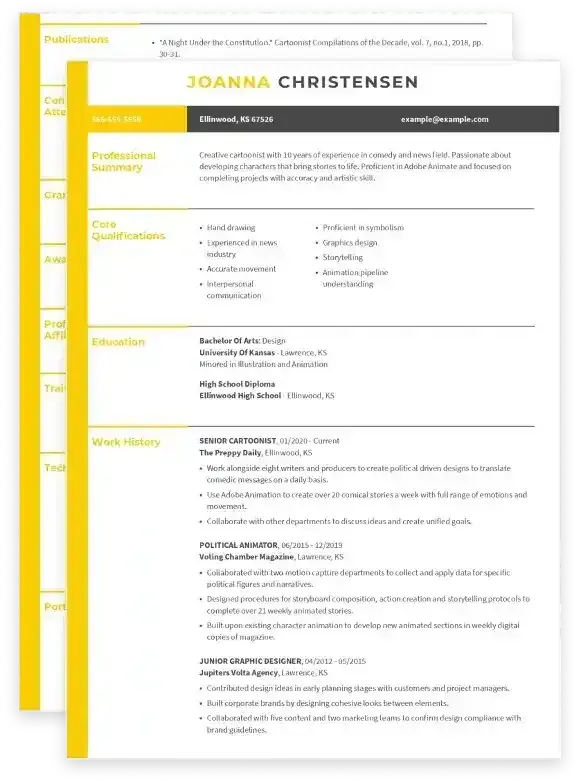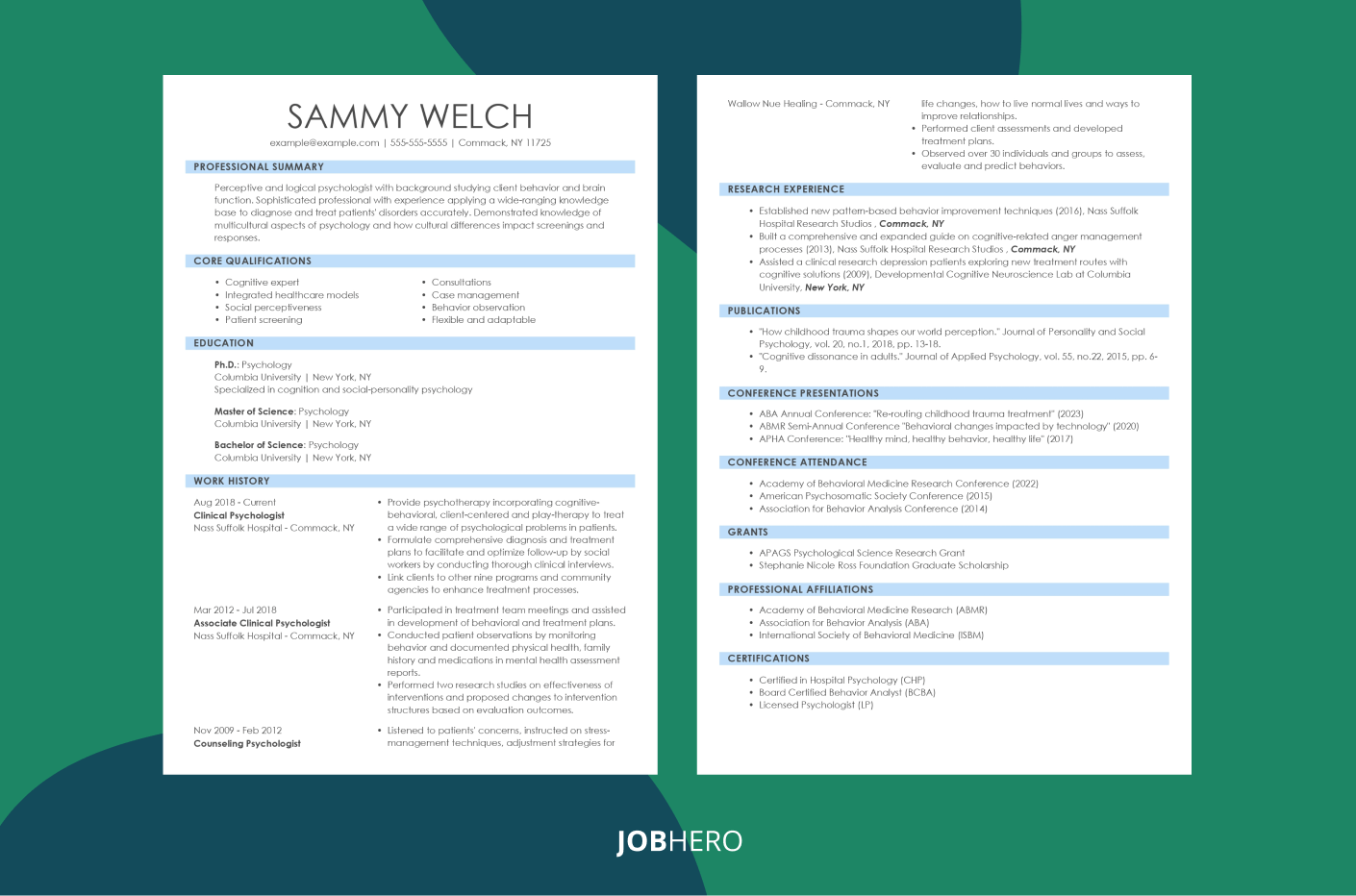- Featured in:
What does CV stand for?
“CV” stands for curriculum vitae. This Latin phrase is the technical meaning of a CV and stands for “course of life.” Your CV is a detailed summary of your academic and professional life — this document usually is more than two-pages long.
Unlike a resume, typically used for most U.S.-based jobs and limited to one or two pages, a CV is highly customizable and usually only used for the following job markets:
- International jobs
- U.S. government jobs
- Local and state civil jobs
- Academia
- Medicine
- Legal
- Research
- Scientific labs
- Grants and fellowships
What are the standard CV sections?
A CV can include multiple sections and range from two to five pages, depending on your academic background and years of experience. You can learn more about each section via our How to Write a CV guide, but most CVs will include the following sections:
- Name and contact details
- Professional summary or objective
- General skills
- Work history
- Research history
- Academic history
- Publications
Add these optional CV sections
when appropriate
Unlike a resume, which captures your professional accomplishments and experience within one page, a CV summarizes your academic credentials and skills development. You can help shape this document by adding or omitting the following sections.
- Research focus
- Past publications
- Academic presentations
- Conference presentations
- Conference attendance
- Scholarships
- Grants
- Fellowships
- Honors and awards
- Language skills
- Digital skills
- Specialized skills
- Professional licenses
- Certifications and achievements
- Professional memberships
- Professional affiliations
What is the Purpose of a CV?
You usually write a CV for job applications in highly specialized courses in higher learning, such as jobs in academia, law, medical research, entertainment, finance or business. Although your CV briefly summarizes your work history, the purpose of a CV focuses on selling your school credentials to potential employers.
Your CV should focus on your past education, specialized labs, certifications, notable awards and achievements within your field of work and study, research projects, published articles or books, peer-reviewed research, and professional memberships or affiliations you joined. This information helps hiring managers gauge your academic and career contributions within your chosen field of work or study.
When Should I Use a CV?
If you are based in the U.S., there are very few professional fields where you’ll use a CV instead of a resume. You can visit our CV versus resumes article to learn more about the professional differences between the two jobseeking documents.
What jobs usually require a CV?
The following careers typically require a detailed, multi-page CV over a resume to gauge your qualifications successfully. Visit our helpful career guides to see how your fellow job seekers describe their skills, training and accomplishments to help you tailor your CV.
How do you build a CV?
You can use our professionally designed CV templates to write your CV, but you can also use our online resume builder to quickly craft a CV based on your chosen professional field! Our Resume Builder features customizable add-on sections so you can expand and create a custom CV based on your employment needs.





